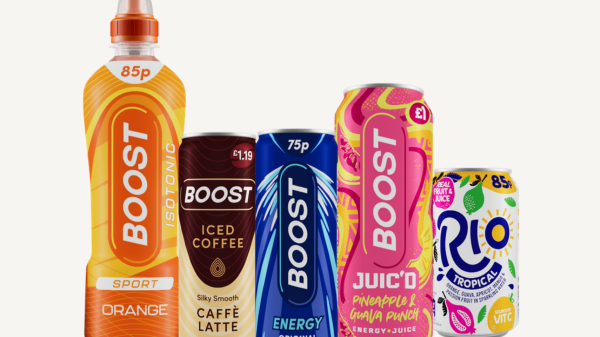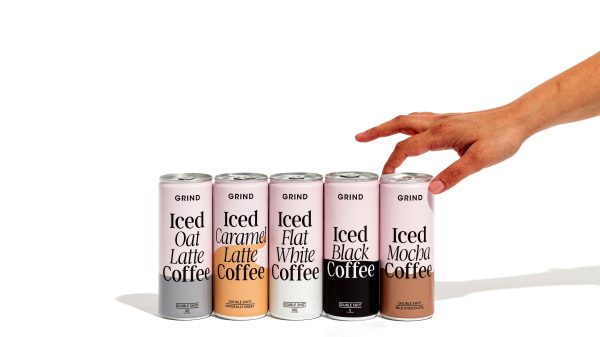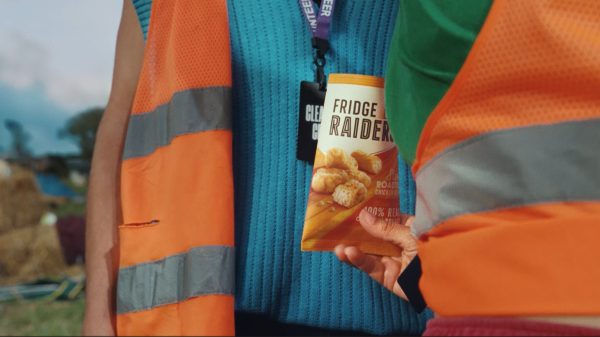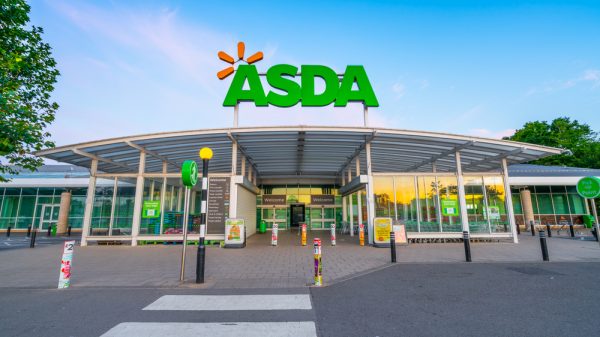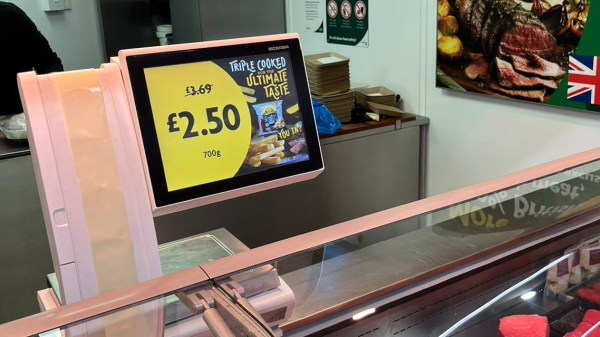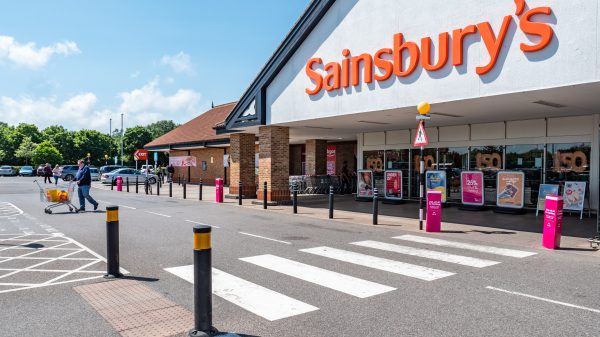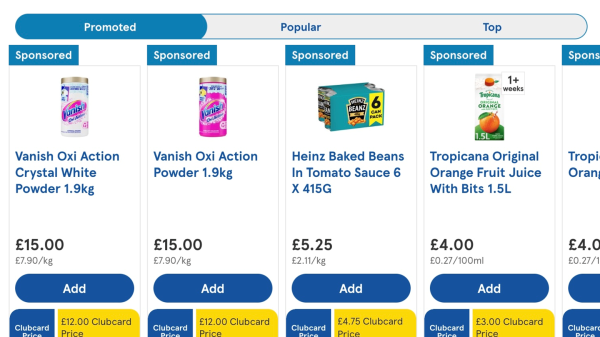With the cost-of-living crisis intensifying and inflation soaring to 10%, the highest level in 40 years, it would be the understatement of the year to suggest that people might be struggling with their bills at the moment.
In an attempt to combat this – and hopefully retain their own margins where possible – supermarkets have introduced a number of money-saving initiatives and schemes to help consumers cope with rising energy bills and food costs.
Earlier this week, frozen goods retailer Iceland announced it would be offering a zero-interest loan scheme; ranging from £25 to £75, to support parents over the summer holidays.
The supermarket has already given out over £1 million since launching the scheme.
“More than ever, people are struggling to purchase much-needed everyday items during this relentless cost of living crisis, and fresh thinking is required by business and government to find workable solutions,” Iceland managing director Richard Walker said.
Asda chairman Stuart Rose also recently criticised the government’s handling of the cost-of-living crisis on BBC Radio 4’s Today programme. He pulled no punches, saying: “We’ve got to have some action, the captain of the ship is on shore leave – nobody’s in charge at the moment.”
Lord Rose added that a recession was “inevitable”, argued that it was vital to “look after those people who can’t take the hit.”
On top of that, a recent survey by Ipsos has found that two-thirds (66%) of the public thinks the Government is not doing enough to help with the cost of living.
So the question remains: should retailers really be taking on more economic responsibility for helping struggling households than the government?
Free kids meals, value ranges and loyalty schemes
Recent analysis from Citizens Advice shows one in four Britons (24%) won’t be able to afford to pay their energy bills by October 2022– plunging 13 million households into debt.
With this alarming statistic – and many others – in mind, retailers have been studiously filling the gaps left by the government’s lack of planning. A plethora of ‘kids eat free’ or ‘kids eat for £1’ deals have been running across supermarket cafes this summer, with Morrisons, Asda Sainsbury’s and M&S all focusing their attentions on making sure struggling families can still feed their children during the summer break.
Supermarkets have also been focusing on keeping prices low as consumers turn towards own-label lines in a bid to save money; launching essentials and basics ranges, adding low-cost meal deal offers and ramping up loyalty scheme discounts wherever possible.
Supermarkets are certainly not short of money-saving ideas. Iceland’s £30 voucher for pensioners scheme and 10% discount for all shoppers over 60 are particularly notable for their targeted approach; applying specifically to a demographic which is more likely to be in financial difficulty.
Elsewhere, it’s a more typical story; Asda’s Just Essentials range has gone viral for its affordability (but also for its bright yellow packaging), and Tesco is price matching hundreds of basics to Aldi prices, promising ‘Low Everyday Prices’ and providing exclusive rewards through Clubcard deals.
Morrisons unveiled improvements to the ‘My Morrisons’ loyalty programme through its app, making it easier for customers to save cash and to get for money-off their next shop, while Sainsbury’s launched ‘Feed your family for a fiver’ campaign, and has a price lock commitment on over 2000 items.
However, recent data has shown that Sainsbury’s has shrunk its online price lock page by 20%, with only 1,640 currently on the list due to inflationary pressures.
The discounters vs the big four
As shoppers get savvier with their weekly shops, discount grocers Aldi and Lidl are snatching more customers from Morrisons and Asda in particular, which are falling behind in the competition to cut prices. The two are currently second only to Tesco for UK market share, with a combined share of 16.1%.
“Initiatives like Iceland’s partnership with a charity-owned lender to offer interest-free loans aimed at the struggling families seem to be filling a yawning gap in support from the government,” said senior investment and markets analysts at Hargraves Lansdown, Sussanah Streeter.
‘’Tesco, Sainsbury’s, Asda and Morrisons had already been peddling hard to hold onto market share from the encroaching discount grocers, Lidl and Aldi, even before this latest food price crisis hit,” she says.
“They have had to step up their game and limit price rises pretty much across the board to compete.”
Streeter believes that Tesco in particular has had success in positioning itself as a value brand, despite seeing its share price drop by 8.4% this year so far. She describes it as being “much more resilient” than Ocado, Marks and Spencer and even Sainsbury’s, which have seen steeper falls.
With shoppers setting limits on what they are prepared to pay at the tills and trying to save on every product, Tesco remains intent on keeping prices as low as possible on the shelves.
Streeter goes on to say that one of the risks with keeping prices low is there’s less wiggle room if volumes fall: “Operating profit margin is expected to drop a touch this year to 3.2%, lower than some peers. That doesn’t leave too much room for error if volumes don’t keep pace.
She points out that Tesco’s profit guidance has already been downgraded once this year, so any loss in profit is “coming at a significant cost” to the supermarket, adding that its in supermarkets’ interests to keep prices low, maintain market share and show they are socially responsible.
Supermarkets, food banks and the poverty gap
“With families feeling the pinch, affordable food clubs across our network have recently experienced their busiest days and weeks on record,” the national director for food charity Feeding Britain, Andrew Forsey, tells Grocery Gazette.
“Some families have had to unplug fridges and freezers, stop using hot water, and take home larger amounts of food from those clubs, in a desperate attempt to keep a roof over their head,” he adds.
“In turn, we are trying frantically to top up our food supplies to ensure no one goes without.”
Many supermarkets and suppliers are already donating generously to this work, and Forsey hopes they will be able to “build on that generosity” in the months ahead. He also says supermarkets could free up even more surplus food from their supply chains, by “recycling more fruit and veg from farms”.
The number of food parcels provided to people across the UK in the past year to March 2022 topped 2.1 million, up 14% compared to the previous year at the height of the pandemic.
“Families are on the floor as costs soar,” agrees Child Poverty Action Group (CPAG) CEO Alison Garnham.
“They’ve been losing financial resilience for years as a result of cuts to social security which is critical support for those on low wages and those who can’t work – for instance if they’re caring for young children.
She believes that “restoring investment in our social security safety net for the long-term” has to be the top priority for the next Prime Minister.
“Four million UK children are already in poverty – their well-being cannot be dependent on retailers’ interventions, however well-intentioned.”
One of the schemes the government has put in place to help families is the Help for Households campaign, which links consumers to businesses offering specific discounts. It has come under criticism for simply repackaging deals and offers that already existed, and for continuing to reply on business to step in and help households deal with rising costs.
Retailers and charities are still filling the gaps for the government in many ways, and with direct support not helping families as much as it could do, it seems likely this will continue for quite some time.
Click here to sign up to Grocery Gazette’s free daily email newsletter

